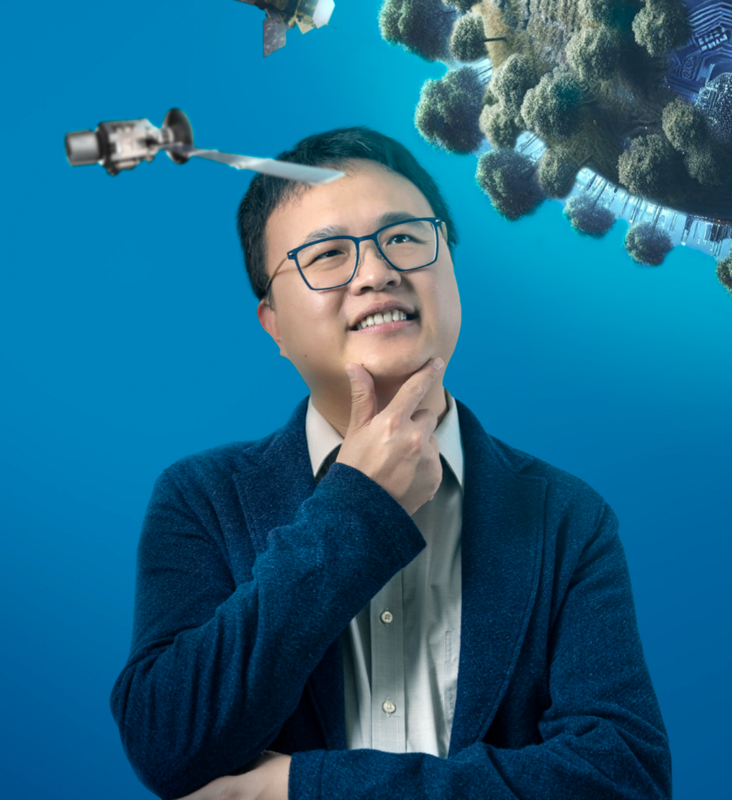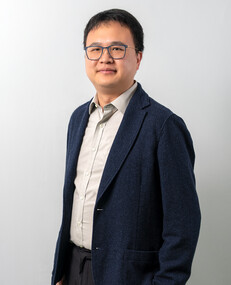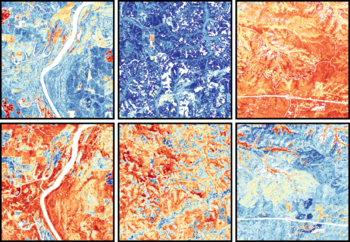
‘In the intricate dance between nature and technology, we find the key to a sustainable future, unlocking insights to foresee changes and inspiring us to protect our planet.’
 Professor Jin WU
Professor Jin WUAssociate Professor of the School of Biological Sciences
- 2024 World’s Top 2% Most Cited Scientists
- 2019 NSFC Excellent Young Scientists Fund (Hong Kong & Macau)
- 2018 Best Young Investigator Paper Award of the Sino-Ecologists Association
- 2017 Goldhaber Distinguished Fellowship from Brookhaven National Laboratory, US
Research Interests:
Plant ecophysiology; biodiversity and ecosystem multifunctionality; climate change impacts and mitigations; novel remote sensing technology; AI; ecosystem modelling.
As the climate crisis escalates, the fusion of technology and ecology has become essential. How can we leverage advanced tools to protect our planet? Enter Professor Jin Wu from the School of Biological Sciences, a recognised figure in global ecology whose innovative research transforms our understanding of the natural world.
At the forefront of global ecology and remote sensing, Wu advanced satellite technology with ecological research to uncover critical insights into the dynamic relationship between forests and the changing climate. With an impressive portfolio of over 120 papers in prestigious journals such as Science, Nature, Global Change Biology, and Remote Sensing of Environment, his research has profoundly impacted the fields of plant ecology and climate science.

High-resolution satellite images that captured multispectral data recorded the reflections of light from plant leaves. Images adapted from Remote Sensing of Environment, 2024, doi.org/10.1016/j.rse.2024.114082
Breaking New Ground in Global Ecology
Wu’s research has redefined how we understand forest ecosystems. One of his key discoveries, published in Science, revealed that the quality of newly emerging leaves plays a pivotal role in maintaining forest productivity and sensitivity to future warming and drier environments—challenging traditional views focused solely on leaf quantity. This work reshaped how ecologists understand seasonal forest changes and their impact on carbon and water cycles.
Building on these insights, Wu’s lab has developed innovative techniques using high-resolution satellite data to bridge the gap between field ecology (which provides accurate but spatially limited knowledge) and conventional satellites (which offer global coverage but less precise data). This approach enables large-scale mapping of plant functional traits and seasonal patterns, providing more accurate data and tools to quantitatively assess the role of plants in climate sensitivity response and large-scale mitigation strategies.
Ultimately, these advanced techniques would enable precise, large-scale monitoring of ecosystem health and climate impact assessments, offering scalable solutions to global environmental challenges.
Merging Science and Real-world Applications
Wu’s work on tropical forest dynamics has been incorporated into advanced Earth system models, enhancing predictions of how ecosystems respond to environmental changes.
Locally, he collaborates with experts to explore nature-based solutions for Hong Kong’s carbon neutrality goals. By leveraging remote sensing, Wu identifies strategies to optimise carbon storage and biodiversity conservation, contributing directly to actionable climate policies.
When asked about the broader impact of his research, Wu emphasises, ‘My ultimate goal is to generate outcomes that can lead to actionable plans to sustain our natural ecosystems in the face of global climate change. The work we do—whether it’s improving ecosystem models or developing smart forestry techniques—must translate into real-world solutions.’
Advancing Science for a Sustainable Future
Through the Global Ecology and Remote Sensing Laboratory at HKU, Wu leads a multidisciplinary team combining ecology, remote sensing, machine learning, and geospatial modelling. Together, they tackle some of the most pressing environmental challenges, from developing precision agriculture techniques to advancing smart forestry practices.
His commitment to mentorship ensures the next generation of scientists is equipped to continue this vital work. Speaking about his team’s mission, Wu says, ‘Our lab brings together diverse expertise in geographic information science, remote sensing, modelling, and ecology. We share a common goal: to integrate satellite data, supercomputing, and machine learning to advance ecological science and address critical environmental problems.’
Wu’s research exemplifies the power of combining cutting-edge technology with ecological expertise to confront global climate challenges. By advancing scientific understanding and driving practical solutions, he is shaping a more sustainable future for our planet — one where innovation and nature thrive together.
| < Previous | Next > |

